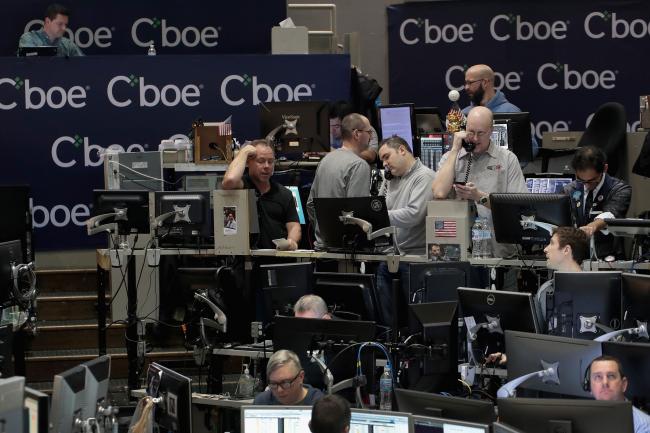(Bloomberg) --
Volatility traders haven’t been this spooked since the financial crisis, according to a key gauge of fear on Wall Street.
As the oil-price plunge frazzled traders on edge over the coronavirus, the generic front-month futures contract for the CBOE Volatility Index surged as high as 51.3 on Monday morning in London. That’s the highest level since 2009.
A jump of more than 10 points from Friday would be the biggest single-day move for the contract since Feb. 5, 2018. On that day, one of the most violent jumps ever in implied volatility helped spur a stock rout and the death of several exchange-traded products in an event known as Volmaggedon.
The VIX, which measures the 30-day implied volatility of the S&P 500 based on out of the money options prices, wasn’t being quoted as of 10:53 a.m. London time. A notice on CBOE’s website said the opening for S&P 500 and VIX products has been delayed.
Futures on the S&P 500 Index fell about 5% in Monday trading, triggering trading curbs designed to limit the most dramatic moves while cash markets are closed.
The VIX was already clocking eye-watering levels last week. On Friday, it surpassed 50, a threshold last breached when the complex broke down in February 2018. While those moves may appear extreme, over the past 10 sessions, the S&P 500’s realized volatility is 52.
Some of last week’s jump in volatility expectations may have been exacerbated by a short squeeze, according to Tallbacken Capital Advisors LLC’s Michael Purves. Net speculative positioning in futures on the VIX still flashed short as of Tuesday, hours after the Fed made its emergency rate cuts, according to the strategist.
“With the aggressive sell off on Thursday and again Friday, that would likely have driven a lot of ‘compelled’ VIX buying on Thursday and Friday if shorts were getting stopped out,” he wrote in a note on Friday.
Traders have also been piling into the biggest short-volatility exchange-traded product, adding $233.5 million over the past six sessions. While inflows into the ProShares Short VIX Short-Term Futures ETF typically reflect bets that calm will break out, they may also be part of a hedging strategy or create-to-lend activity.
Either way, anyone who had bet on market calm this week looks set for a world of pain.
